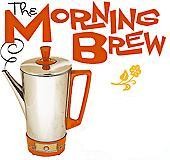The Philadelphia Inquirer dedicated its Sunday front page to the link between poverty and obesity. They feature a family living in the second-hungriest congressional district in the country. "'One of our biggest misconceptions is that it's poor people's fault,' said Adam Drewnowski, a University of Washington epidemiologist and obesity expert. 'The poor, without access to healthy foods, are making the best possible choices under difficult circumstances.'" Complaints have helped. Little Hug fruit drinks (nicknamed "quarter water") has replaced the sugar in their drinks with sucralose. But it's not enough.
Not that customer complaints don't work. The Rochester (New York) Democrat and Chronicle talks to upstate New York farmers about how customer demands have changed farming practices. The Upstate Niagara Cooperative, a collective of 385 dairy farmers, recently decided to stop using recombinant bovine growth hormone in 2011. Even though the hormones increase milk production, enough customers have requested hormone-free dairy that it's become too expensive to segregate the conventional milk from the hormone-free.
How consumers use animals also dictates the price. NPR's All Things Considered interviews Hal Herzog, author of the new book, "Some We Love, Some We Hate, Some We Eat: Why It's So Hard to Think Straight About Animals". He examines why we decide to cherish some animals and eat others.
Customer demand's lead to some strange, health code-violating sleeping habits in New York City. Despite laws requiring them to be returned to their commissaries at night, the New York Post reports a growing trend of food cart operators shunning the law and parking their carts overnight in hot spots with the help snoozing inside. "'That's crazy!' exclaimed Jennifer Suarez, 36, an Astoria street-food devotee. 'You shouldn't sleep where you serve food.'" Especially if you drool in your sleep.


